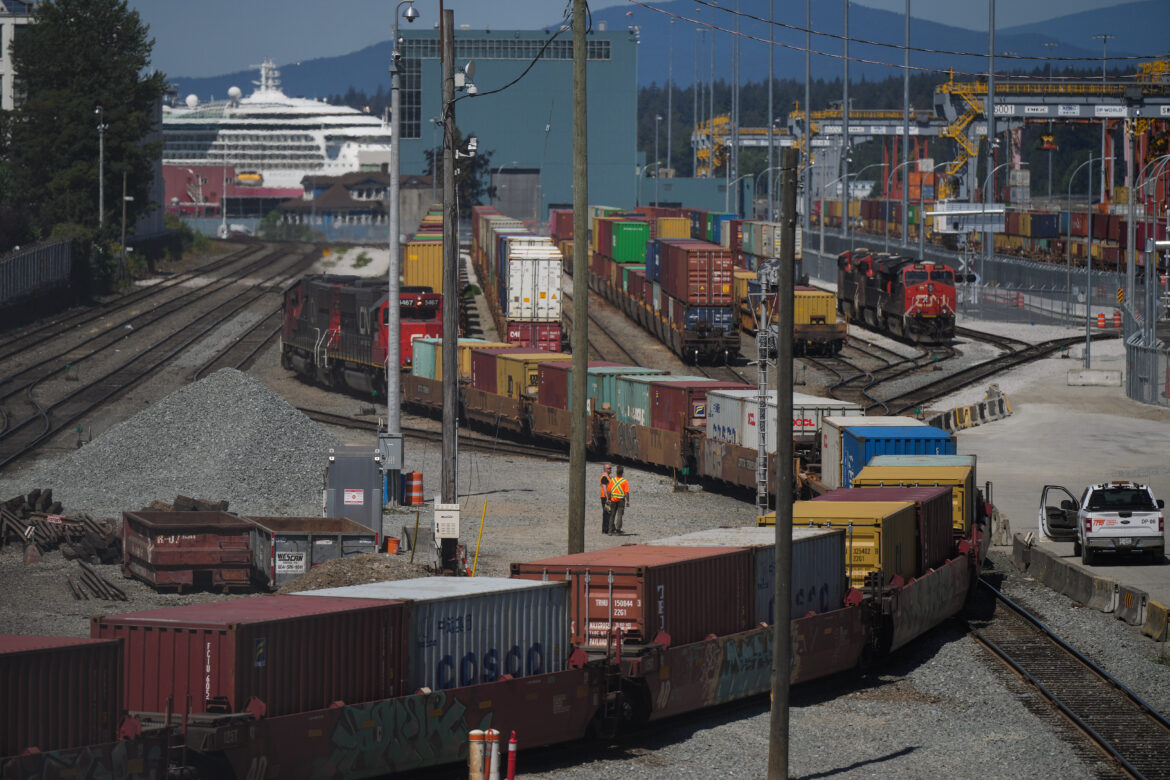586

A CN Rail train moves cargo containers at the Centerm Container Terminal at port in Vancouver, on July 14, 2023. THE CANADIAN PRESS/Darryl Dyck




